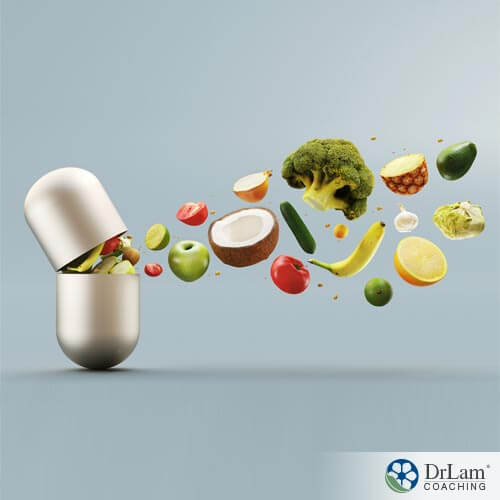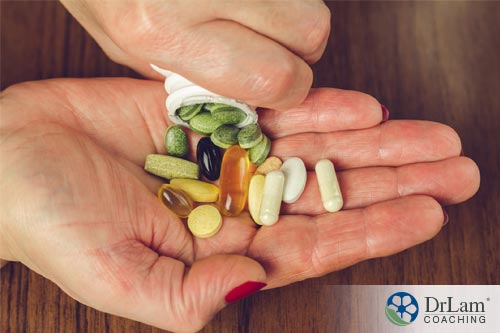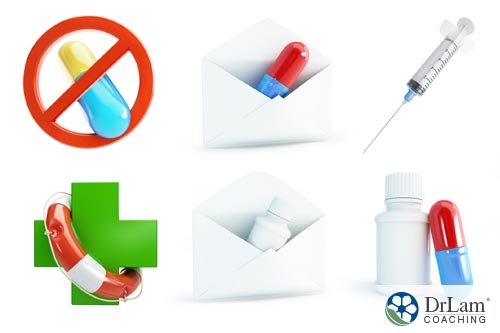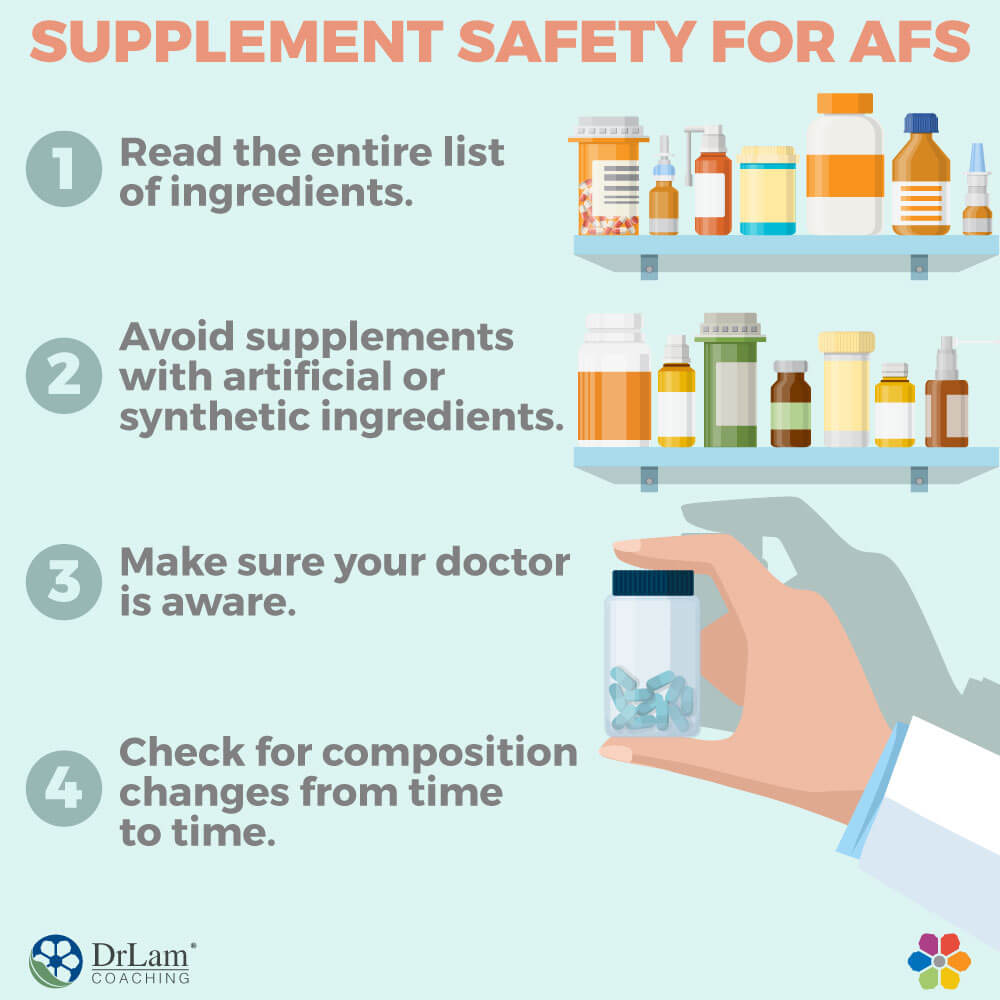 Supplements have become a multibillion-dollar industry. But unlike pharmaceuticals, supplements and supplement brands are not as strictly regulated and do not undergo the rigorous testing for safety and effectiveness that drugs undergo. That means that in order for you to get the most out of their benefits, you need to understand how to read and analyze supplement ingredients.
Supplements have become a multibillion-dollar industry. But unlike pharmaceuticals, supplements and supplement brands are not as strictly regulated and do not undergo the rigorous testing for safety and effectiveness that drugs undergo. That means that in order for you to get the most out of their benefits, you need to understand how to read and analyze supplement ingredients.
Generally, with any vitamin and mineral, the best practice is to get as much from food as possible, so that you can keep supplement use to a minimum. One reason is that, in some cases, supplement ingredients may actually aggravate a health condition rather than help it, and if your health is compromised, supplements may end up having a paradoxical reaction in your system.
Having said that, supplements can be very helpful, and indeed can sometimes be necessary, so don’t let the drawbacks deter you from using them altogether. Once you have cleared the initial confusion about how to read labels to pick the highest quality supplements and avoid side effects, you will be able to use them to your advantage while minimizing their risks significantly.
In this article, you will learn how supplements should be used, how to decipher supplement ingredients, and how to deal with possible risks.
If you have an autoimmune condition, a chronic condition, Adrenal Fatigue Syndrome (AFS), or any dysregulation in your NeuroEndoMetabolic (NEM) Stress Response, you should pay extra attention to the types of supplements you take.
AFS is a condition where your adrenal glands are overworked due to chronic stress, whether physical or psychological. Your adrenals produce your body’s most important anti-stress hormone, cortisol, to deal with that stress. In the beginning stages, your cortisol levels rise to meet the growing demand, but as your adrenals weaken, your cortisol levels drop.
Symptoms of adrenal fatigue include tiredness, easily gaining weight and difficulty losing it, insomnia, waking up in the middle of the night, increased food and drug sensitivities, intolerance to stress, hypoglycemia, hair loss, brain fog, anxiety, mild depression, lowered immunity, loss of libido, PMS, infertility, and heart palpitations.
Your adrenals are part of your NEM’s hormone circuit, which is one of six circuits of organs and systems that work together to fight stress. The other five are the bioenergetic, the neuroaffect, the cardionomic, the inflammation, and the detoxification circuits.
Dysregulation in any of these affects all others and affects overall health. And it also means you are going to be more sensitive to supplement ingredients than usual. This is especially so if your inflammation and detoxification circuits are not functioning properly. But it also means that you may need certain supplements in order to recover fully.
Adrenal fatigue recovery is founded on getting the right kind of nutrition, and supplements can give the extra boost necessary to get over certain humps in recovery or to speed up the process a little bit. But, because your body is in a more fragile state than usual, you will have to make sure that the supplements you take are safe, of high quality, in the right dosage, and in the correct frequency. That is why we usually recommend you get guidance from an experienced professional, especially if you are in the more advanced stages of AFS.
 The first thing to understand is that supplements can be used in two ways: to fill in any nutritional gaps left over by your diet or for a therapeutic purpose. Depending on which of the two you are using a specific supplement for, the dosage will vary.
The first thing to understand is that supplements can be used in two ways: to fill in any nutritional gaps left over by your diet or for a therapeutic purpose. Depending on which of the two you are using a specific supplement for, the dosage will vary.
For example, with vitamin C, the recommended daily allowance (RDA) is 75 mg for women and 90 mg for men. You can easily meet this RDA with food, and if there’s a day here or there you don’t, you can still get enough with a multivitamin. But, if you have lowered immunity or a condition like adrenal fatigue, you may require much higher doses, anywhere from 200 to 2000 mg a day.
Not only that, but the dosage of this therapeutic vitamin C will vary depending on the type. For example, with commercial oral liposomal vitamin C, less is needed because of the superior delivery system, your body can tolerate it. Those who have difficulty may do well instead with fat-soluble vitamin C and bioflavonoid, which can go up to 1000 mg or more a day. With mineral ascorbates, the blend makes a difference. We usually recommend those with adrenal fatigue take a blend of calcium, magnesium, and sodium ascorbates in doses up to 1000- 2000 mg a day.
For most more-or-less healthy individuals, there are certain deficiencies that are quite common and would make sense to supplement for unless there is a concerted effort to somehow get them through diet. They include:
And, in healthy individuals who are at certain milestones in life, such as pregnancy or menopause, specific supplements are still needed even if those individuals eat a healthy diet. Those include folic acid and calcium, respectively.
Once you know what you are using a supplement for, you can choose the dosage and delivery.
Then you can begin the process of analyzing the ingredients.
Although the FDA does regulate how supplements are labeled and what ingredients go into them, not all labels mean what you think they mean, and supplement ingredients can be quite confusing.
 One of the most common mistakes that people make with supplements is equating “natural” with safe. Natural ingredients can still have effects, and not all of them are desirable. Medicinal herbs that are 100% natural can still be harmful if taken in certain situations. For example, St. John’s wort, which is an herb that is used to help with depression, can weaken the effects of antidepressants, antibiotics, and anticoagulants.
One of the most common mistakes that people make with supplements is equating “natural” with safe. Natural ingredients can still have effects, and not all of them are desirable. Medicinal herbs that are 100% natural can still be harmful if taken in certain situations. For example, St. John’s wort, which is an herb that is used to help with depression, can weaken the effects of antidepressants, antibiotics, and anticoagulants.
Also, although labels and ingredients are regulated, the quality can vary widely, since supplement producers may source their ingredients from many different suppliers that are not regulated.
For all these reasons, it is really important for you to learn how to read labels and supplement ingredients in order to assess the risks and benefits of the supplements you are considering taking. This is true even if you are following the recommendations of a doctor or holistic health practitioner – you should still make sure you are aware of what you are putting in your body and then monitor how your body reacts.

One way to stay safe is to follow these four easy rules that will help maximize your supplements’ benefits while minimizing their risks.
Supplement ingredients are one of two types: active ingredients and inactive ingredients. Active ingredients are the ingredients that are meant to produce the effect that you are taking the supplement for. Inactive ingredients can be fillers, colors, flavors, or stabilizers, and they are not meant to produce a therapeutic effect.
But the fact is that inactive ingredients can still have an effect, and so you need to pay just as much to them as to the active ingredients. That is why rule number one in understanding supplements is to read the entire list of ingredients.
After reading the entire list of ingredients, which can include anything from wheat, gluten, sugar, and starches to artificial colors and flavors, you now need to discern which to avoid and which are okay.
Some supplement ingredients to avoid including those that are:
A great tip to help you with choosing supplements is to take a block of time to research all the possible ingredients that you may want to avoid and write them on a list. Keep this list handy whenever you are supplement shopping or talking with your healthcare provider. Although it may be tedious at first to learn all the unfamiliar names of ingredients, it is an empowering exercise and much easier to do than you might imagine. And if you need extra help figuring some things out, ask your local pharmacist.
Here are some common supplement ingredients to be familiar with:
 Although it should be standard practice for your doctor to recommend supplements and medications that don’t contain ingredients that may aggravate your health, not all medical practitioners are aware of what sensitivities their patients have.
Although it should be standard practice for your doctor to recommend supplements and medications that don’t contain ingredients that may aggravate your health, not all medical practitioners are aware of what sensitivities their patients have.
This is why you need to take control and make sure your doctor knows exactly what kind of sensitivities you have and also exactly what ingredients are in the medications and supplements she or he is suggesting you take.
Any time there is even a little doubt, ask for clarification. Good supplement companies will have customer service, so if there is something you or your doctor are unsure about in the ingredients list, call and ask. If customer service doesn’t know, better skip this brand and try an alternative.
Brands sometimes change their supplement ingredients, and so even if you’ve found one that you are very comfortable with and that has been working for you, you still need to check whenever you are about to restock in case there were changes made to its composition.
Sometimes, even if the supplement is safe, of good quality, and the ingredients are not ones that you are normally sensitive to, you may end up getting a paradoxical reaction. A paradoxical reaction is basically the opposite of what you are trying to achieve by taking a certain supplement or medication, and it usually occurs when your NEM, especially your detoxification circuit, is in a weak state.
That’s actually why one of the symptoms of AFS is an increased sensitivity to foods and drugs. It’s because many of your bodily processes slow down in order to conserve energy, and that means you are not eliminating toxins and metabolic by-products in a timely fashion, so they end up accumulating in your system and raising your toxicity levels.
If you notice your symptoms worsening rather than improving with the use of a supplement, or if you notice that the effect is the opposite of what the supplement is supposed to do, you may be experiencing a paradoxical reaction. This doesn’t mean you should never use that supplement again, but it does mean you may need to improve your detoxification and get your adrenals stronger before using them.
In all cases, you should avoid taking the shotgun approach to supplementation, where you take a bunch of different supplements hoping that some combination will work. This increases your risk for a paradoxical reaction, and you won’t know which supplement ingredients you are sensitive to and which ones you are okay with. A slow, deliberate, and gentle approach is always the best. And make sure you ask your healthcare professional or pharmacist if you are at all in doubt.
Labels can be misleading, and not everything that is organic, herbal, or natural is right for your specific needs and condition. Supplement ingredients vary widely in quality and safety, so do yourself a favor by learning how to read them so you can pick the right supplement for you.
